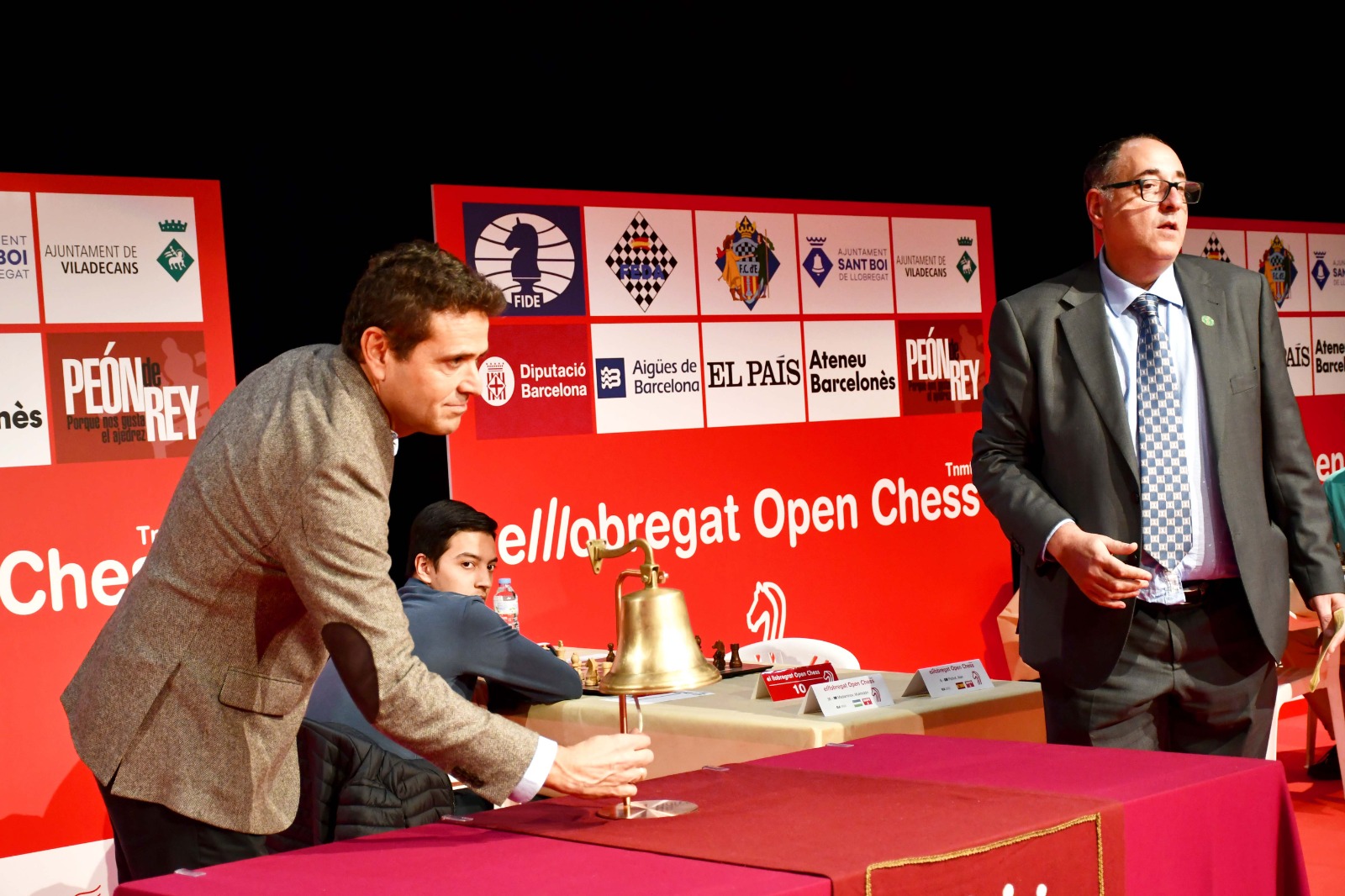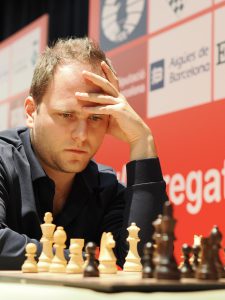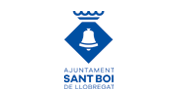The early victory of Indian chess player Sunilduth Lyna Narayanan over his compatriot Chithambaram Veerappan Aravindh conditioned the development of the sixth round, putting pressure on the rest of the top players. Narayanan’s preparation worked to perfection, giving him the point at stake and what is also very important: rest. The IV Llobregat Open Chess Tournament is a very demanding competition, solving a game quickly will give you extra energy in the final rounds. Vladimir Fedoseev and Aditya Mittal also won on tables 4 and 6.
Javier Habans has lost his unbeaten record against the Italian Andrea Stella, who played a very sharp variation with the unusual Ch6 against the development of the English Opening. The Argentinean Fernando Peralta, who took advantage of the sixth round very well, will go up to table 7 tomorrow and will play with the white pieces.
THE CHAIR: APPROACH
We propose you to join us with the following exercise, extracted from the game played by GM José Manuel López and FM Francisco Fiorito. It is Black’s turn. What would you do? Why? At the end of this chronicle you will have the solution.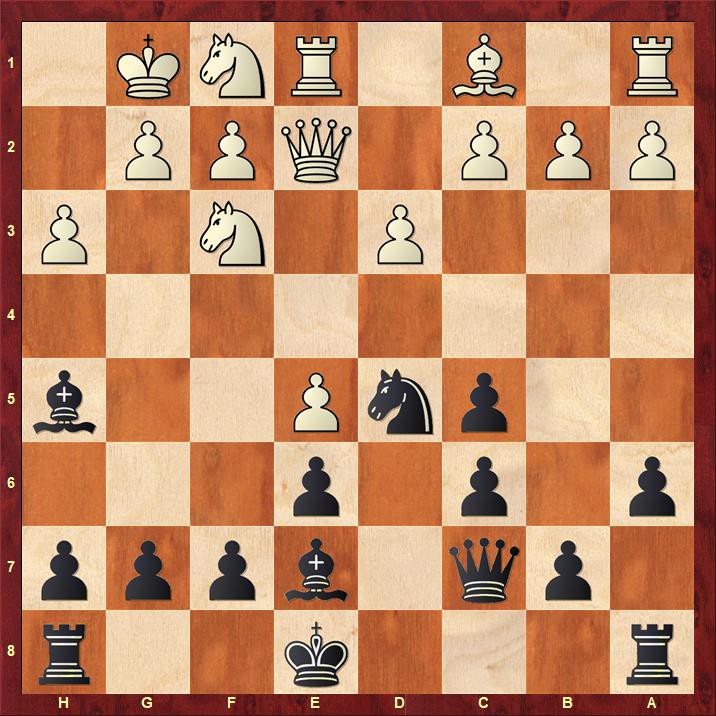
López, J. M. – Fiorito, F.
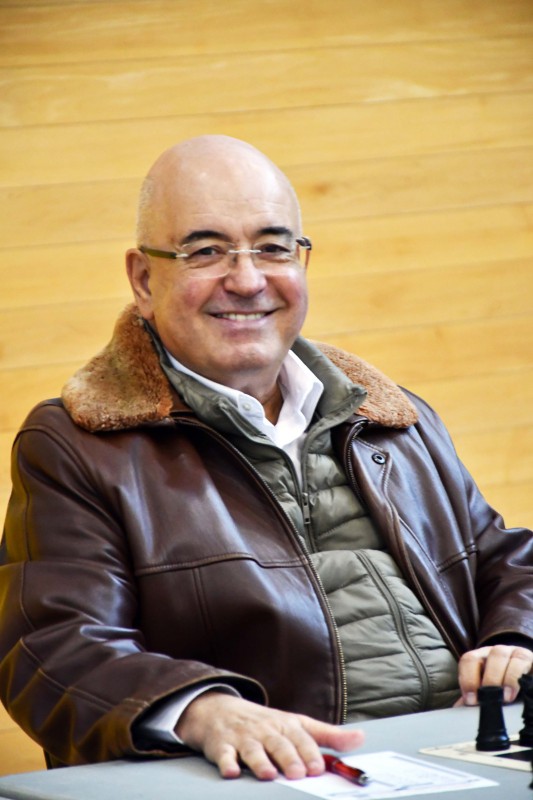
Xavier Pérez Llorca, organizer of the Llobregat Open Chess Tnmt.
We have talked with the organizer of the IV El Llobregat Open Chess Tournament and editor of the newspaper El Llobregat, Xavier Pérez Llorca, who has shared his experiences with us.
– How did your connection with chess begin?
– I was taught to play chess by my father, as a child, and I became fond of playing at school, with my friends. I was playing more or less continuously until my college years.
– What does organizing the Llobregat Open Chess Tournament mean to you?
I see it as a contribution to the world of chess. I think at the moment I can contribute more by organizing than by playing.
– What would you like it to mean for El Llobregat?
– When we came up with the idea of launching the Llobregat Open Chess Tournament we did it with the intention of linking the name of the region (El Baix Llobregat) to a top level international tournament. I believe that we are achieving it and that it is important for the good name of the county and to offer the fans of the chess world an important experience every end of the year.
– What has been the biggest organizational challenge?
– To try to achieve the best possible quality of the tournament in many aspects: the participation of top players, their comfortable stay among us, the correct organization and to foresee what we can improve. In this fourth edition the substantial improvement has been the broadcasting: 55 boards, which means that you can follow, day by day, the games of the 110 top-ranked players, with first-class commentators and without any technical interference.
THE CHAIR: SOLUTION
In the words of the young Argentine FM Francisco Fiorito: “I played Nb4. You can see that I threaten to eat his knight on f3 with the bishop, which would cause him to capture my queen (so as not to damage his castling), so that my Nb4 would win the pawn on c2, which would have been unprotected. Now, what is the key to that little tactical idea? The idea behind it was positional: to weaken his castling. How? To avoid the loss of the c2 pawn, he has to oppose the attack of the bishop against the knight. He will make g4, weakening his castling before he can rearrange his pieces. The rook on h8 will benefit from this because, if in the near future I open its column (h5), it will come into play”.
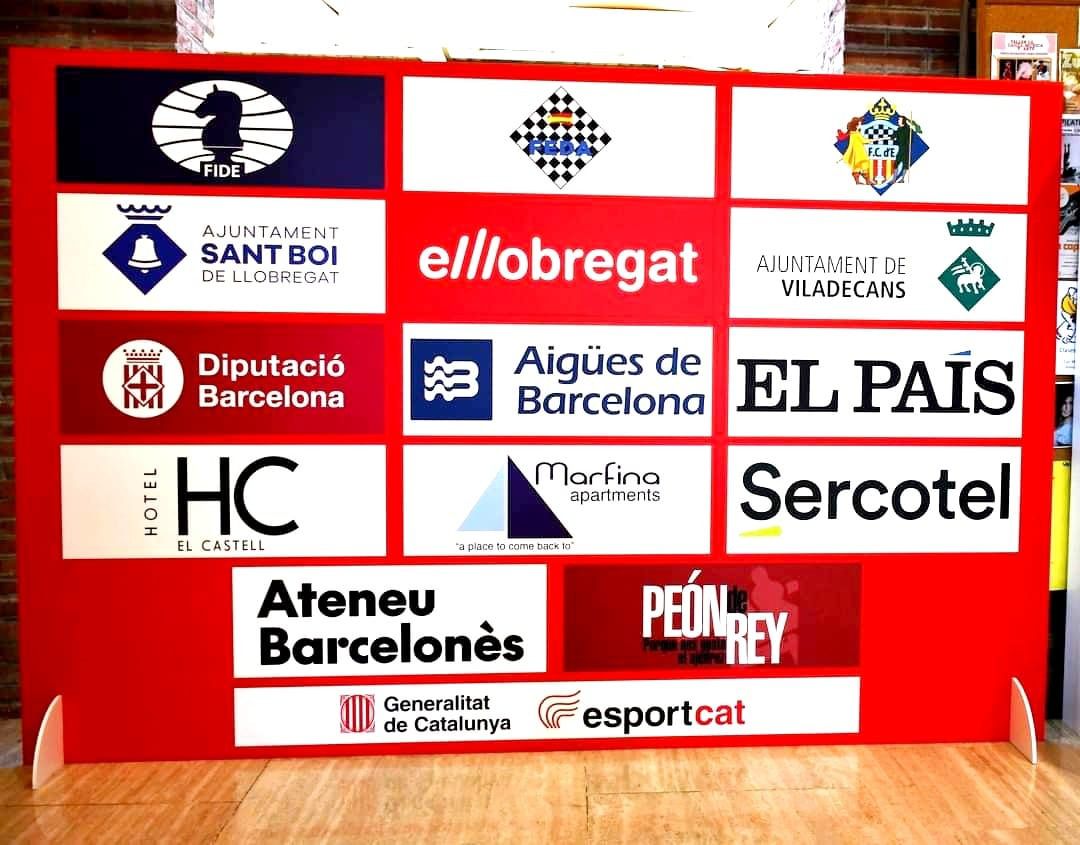
Our kind sponsors show their logos at the Llobregat Open Chess Tournament. Photo: Patricia Claros Aguilar (@Patriciaajedrez).
By Jorge I. Aguadero Casado, editor-in-chief of Peón de Rey.


